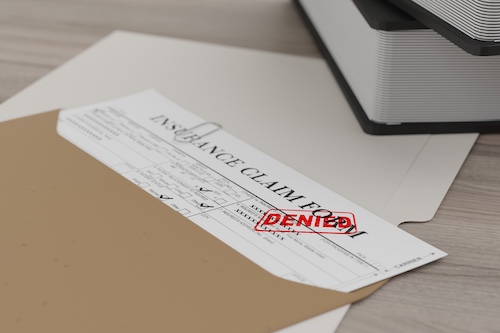An Injury Can Change Everything for a Warehouse Worker
Let’s take a moment to consider a scenario that many warehouse workers in Georgia may face. “John” is a dedicated employee who’s been with his company for five years. Every day, he’s lifting heavy boxes, sorting goods, and operating forklifts, putting in long hours to meet deadlines. One day, while lifting a particularly heavy crate, he suddenly feels a sharp pain in his lower back. He struggles to stand, and the pain only intensifies.
His first instinct is to shake it off and continue working. But as the day goes on, the pain only worsens. Then “John” starts to feel numbness in his leg. He finally reports the injury to his supervisor and heads to the doctor, where he learns he has a herniated disc that may require surgery. Not only does “John” now find himself unable to work, but he’s also facing medical bills and the uncertainty of how to support his family.
This is where workers’ compensation comes in. If “John” had filed a claim immediately after his injury, he could have been eligible to receive medical benefits, wage replacement, and assistance to help him get back on his feet. However, without that knowledge or guidance, he’s now in a difficult financial situation, and uncertain about what he can do.
Does this scenario sound familiar?
If you’re a warehouse worker in Georgia, understanding your rights and how workers’ compensation works is crucial to your well-being.
Let’s explore these benefits in more detail, and how to make sure that you can access them if (or when) you need them.
Common Injuries That Warehouse Workers Face
The very nature of warehouse work — lifting, loading, and operating heavy machinery — already puts workers at high risk for injury. Let’s take a look at the most common ones that warehouse workers face.
1. Musculoskeletal Injuries
Lifting heavy boxes, repetitive bending, and twisting motions often lead to back, shoulder, and knee injuries. These can range from sprains and strains to more severe conditions like herniated discs or torn ligaments. Repetitive strain injuries (RSIs) are also common, especially for workers who perform the same movements day in and day out.
2. Slips, Trips, and Falls
Wet floors, cluttered aisles, or obstacles in the warehouse are prime causes for slip-and-fall accidents. These types of injuries can lead to sprains, fractures, and even head injuries, which may require long-term medical care.
3. Vehicle-Related Accidents
Workers may be injured by forklifts or other machinery used in the warehouse, either by being struck, crushed, or hurt while unloading shipments.
4. Repetitive Strain Injuries (RSI)
Repetitive lifting, pushing, or pulling can lead to carpal tunnel syndrome, tendonitis, and other RSI conditions that can significantly affect a worker’s ability to perform their job.
5. Occupational Illnesses
Warehouse workers are sometimes exposed to harmful chemicals, dust, or other environmental factors that can lead to respiratory problems or skin conditions over time. These illnesses may not become apparent until later in the worker’s career, making it essential to track and report these conditions promptly.
If you’ve experienced any of these injuries or illnesses as a warehouse worker in Georgia, it’s important to understand your rights to workers’ compensation benefits.
Types of Workers’ Compensation Benefits for Warehouse Workers in Georgia
Workers’ compensation benefits can provide critical support in your time of need. These benefits can cover medical expenses, replace lost wages, and provide ongoing care. Here’s an overview of the key types of benefits that warehouse workers may be entitled to after on-the-job injuries.
1. Medical Benefits
Workers’ compensation will cover the cost of medical treatment necessary to treat your injury. This includes doctor visits, hospital stays, surgeries, physical therapy, and even prescriptions. It’s important to keep all medical records and documentation to ensure that these expenses are covered.
2. Temporary Total Disability (TTD) Benefits
If you are temporarily unable to work due to your injury, you may qualify for temporary total disability (TTD) benefits. These typically replace two-thirds of your average weekly wage (AWW) and are meant to assist you while you’re recovering. The length of time that you’ll receive these benefits depends on the severity of your injury and how long you’re unable to work.
3. Permanent Partial Disability (PPD) Benefits
If your injury results in permanent impairment but does not prevent you from returning to work, you may be eligible for permanent partial disability (PPD) benefits. These compensate you for the long-term effects of your injury, based on the impairment rating assigned by a doctor.
4. Vocational Rehabilitation Benefits
If your injury prevents you from returning to your previous role as a warehouse worker, you may qualify for vocational rehabilitation benefits. These are meant to help you train for a new job or role so that you’re able to continue working and earning income, whether through your current employer or a new one.
5. Death Benefits
Should a warehouse worker die from a workplace injury, death benefits are available to surviving family members. These benefits cover funeral expenses and provide financial support to the worker’s dependents.
How Warehouse Workers Can File for Compensation
Filing a workers’ compensation claim may seem like a straightforward process, but it must be done promptly and correctly. Here’s a step-by-step guide on how to file your claim.
1. Report the Injury Immediately
You should report your injury to your employer as soon as possible. If you don’t, you could risk your claim being delayed or denied. Document the details of your injury, including the time, location, and how it happened.
2. Seek Medical Treatment
Once you report the injury, it’s important to seek medical treatment immediately. Georgia workers’ compensation requires you to see an approved medical provider, so make sure to follow your employer’s procedure for selecting a doctor.
3. File the Workers’ Compensation Claim
Your employer will provide you with a workers’ compensation claim form, typically a WC-14 form. Complete the form and submit it to the Georgia State Board of Workers’ Compensation (SBWC). Be sure to include all necessary medical records and documentation to support your claim.
4. Follow Up on Your Claim
Stay in touch with your employer and the workers’ compensation insurance company to ensure that your claim is being processed. If your claim is denied or delayed, you may need to take further action, including appealing the decision.
Common Claim Challenges That Warehouse Workers Face
While workers’ compensation is designed to support warehouse workers in their time of need, the system can sometimes be difficult to navigate.
1. Delayed Claims
Workers’ compensation claims can sometimes take longer to process than expected, leading to delays in receiving wage replacement or medical coverage. It’s important to stay on top of your claim and follow up if necessary.
2. Disputes Over Injury Severity
Insurance companies or employers may dispute the severity of your injury or say that it isn’t related to work. This can lead to delays or a denial of benefits. It’s crucial to have strong medical documentation to support your case.
3. Claim Denials
In some cases, your claim may be denied due to administrative errors, missed deadlines, or a lack of evidence. If this happens, you have the right to appeal, but it’s important to act quickly.
A Workers’ Compensation Lawyer Is Your Advocate
If you’re facing challenges with your claim, consult with a workers’ compensation lawyer. Here’s how they can help.
-
Navigating the Claims Process: A lawyer can help you understand your rights and guide you through the paperwork and deadlines.
-
Disputes and Denials: If your claim is denied or disputed, a lawyer can advocate for you and help resolve the issue.
-
Maximizing Compensation: A lawyer can ensure you receive fair compensation for medical expenses, lost wages, and long-term disability.
-
Appealing Denials: If your claim is denied, a lawyer can assist with the appeals process to get your benefits approved.
Warehouse Workers Must Protect Their Rights
If you’ve been injured on the job, now is the time to take action. You’re entitled to workers’ compensation benefits, and it’s essential to file your claim as soon as possible.
At The Law Offices of Humberto Izquierdo, Jr., PC, we’re here to represent warehouse workers like you. Our experienced team is dedicated to helping you get the compensation you deserve so that you can focus on recovery, not on how to pay your bills.
Contact us today for a free consultation to share your story and learn more about our available services.



